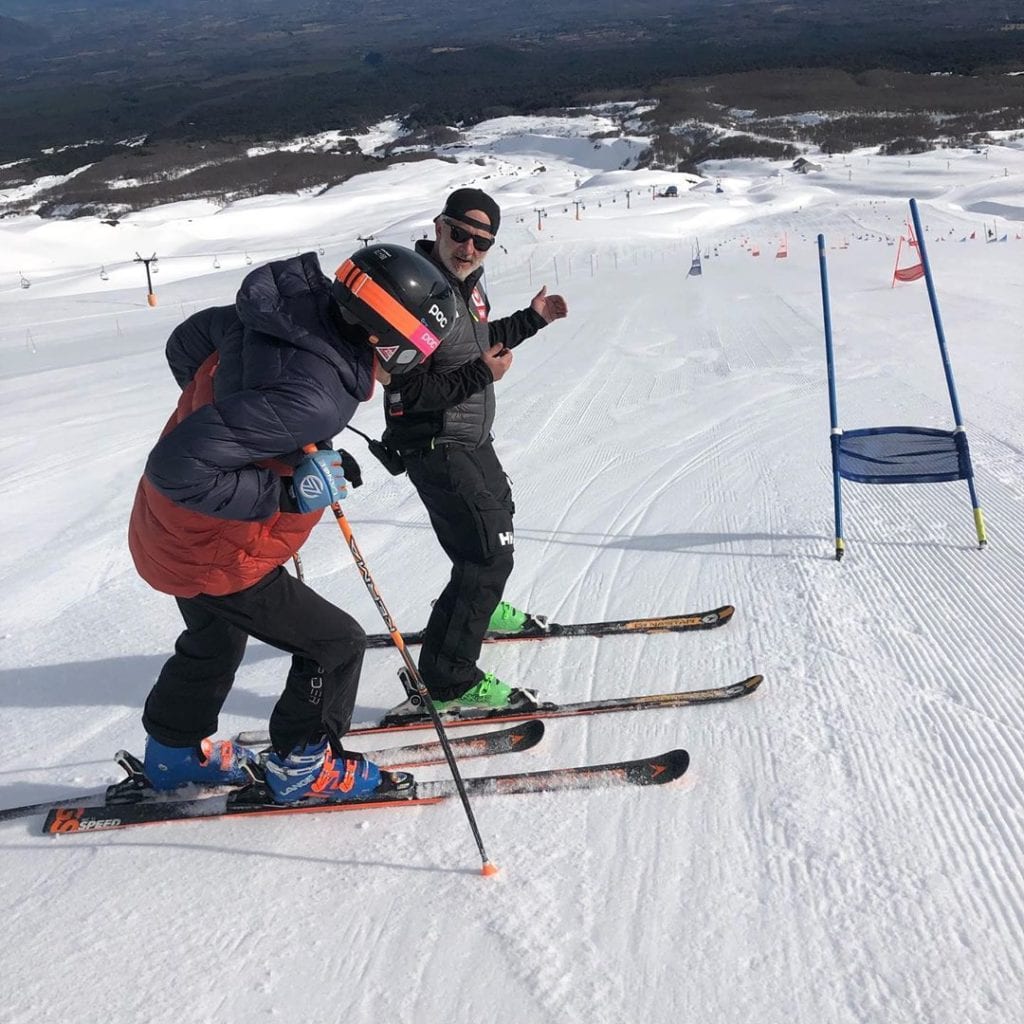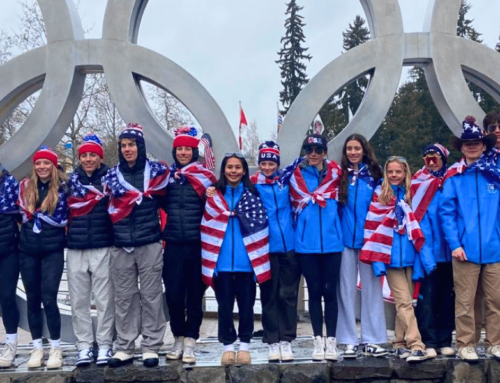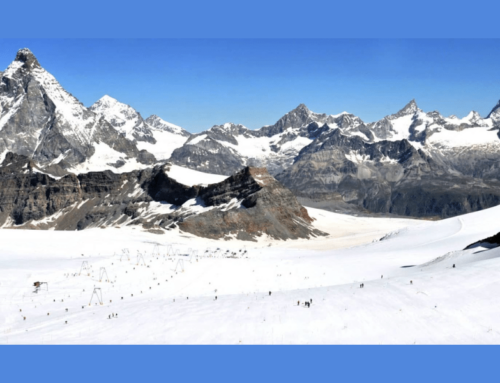Canada’s eastern coaches dig deep to develop next wave
Editor’s note: This is the second in a two-part series looking into the provincial team plans, highlights and challenges heading into an uncertain competitive season. Read last week’s story at: Western Canada development coaches anticipating a ‘wild season.’
If he was a decade or so younger – or this was 1984 – you might mistake Quebec ski team women’s head coach Francis Royal as a Miyagi-Do Karate student, alongside Daniel Larusso.
Just like how Mr. Miyagi preached so poetically, finding balance, internal peace and focus are the keys to success in sport — and in life. Royal, in his action and words, agrees.
Entering his 10th season as a coach of the powerful women’s Quebec ski team, the 35-year-old waxed on when attempting to answer how his program has produced oodles of talented skiers who have moved onto World Cup racing with the national team, such as Laurence St. Germain, Valérie Grenier and Marie Michèle Gagnon.
“Our program is based on philosophy and culture; we create a holistic support structure and create balance,” Royal said enthusiastically from his home in Quebec city. “We’ve also had tremendous athletes in our system, they showed these qualities … it was more than just ski racing for them, it was family and a culture of respect. We pushed them to develop resiliency and to develop as good humans first.”

The 2020-21 provincial program will again feature 14 female and seven male skiers, ranging in age and situation, with some attending university and balancing the Alpine Canada NextGen program, while others are learning the rigorous ropes of the provincial team expectations.
When Alpine Canada announced the national program, where athletes will be “housed” with the provincial team but will have opportunities to train and potentially race with the national ski team, Royal instantly saw opportunities for growth.
“[Alpine Canada] created good opportunities for our NextGen girls. I’ve had some communication with Manny Gamper (national women’s program head coach) and we’ve been sharing ideas and sending videos.”
Royal has spent considerable time “thinking outside the box,” particularly during Covid times, managing a large group with many scenarios and individual pathways. The academic-minded coach with a degree in the Science of Sport and Physical Activity Interventions from Laval University, focuses on patience and the long path to keep skiers engaged in the sport long enough to fulfill their potential.
“Let’s keep helping those athletes through the system and keep them well prepared and ready for the World Cup,” he said. “What helps a lot is when our girls see Laurent [St. Germain] … she showed a lot of resiliency and she was even close to losing her spot on the Quebec ski team after a tough year. But she kicked ass, worked hard and show resiliency and got a spot on the [national] team. It’s huge having her around, I bet each week she get’s a call from one our girls.”
Royal also keeps one eye looking to the future and continuing to develop the next wave of talent. “We’re trying to prepare our group for the NorAm but we’re also putting a lot of energy into our prospects,” he said. “Making sure that the younger boys and girls are getting ready for the next level. If they understand our philosophies and our culture they’ll be more ready to earn their spot.”
With on-snow training in Les Deux Alpes through July and early August in partnership with the French ski federation, the Quebec ski team has kept the engine warm and are in good shape heading into the season, one of many unknowns.
Royal said that it would be dangerous to take the same mentality into the season. Along with other Quebec women’s coaches Dillon Prohet and Justine Parent, he stated adaptation is critical. “Now we’re trying to not be too emotional in our decisions, and look at a different type of periodization and to optimize domestic [within Quebec] training,” he said. “We’re thinking about racing in January and for sure we will need to peak at different times. We need to look at the season different and not be burned out by March.”
Jonathan Blanchard took over the reigns as the Quebec men’s head coach after the departure of Julien Cousineau. Marie-Eve Boulianne was also added to the men’s coaching staff who will oversee seven men. “It’s a very solid group, they’re mature and have experience, we could expect a breakthrough season for those guys,” Royal said.
Harrington: creativity, adaptability and regionalized racing is key for Ontario
Even though he’s traveling less, working more, dealing with massive uncertainties around COVID mitigation, Kip Harrington knew what he was getting into when we took on the role as Athletic Director of Alpine Ontario earlier this year after many years as the provincial team head coach.
The veteran coach from Sault Ste. Marie who has worked with high performance athletes at nearly every level from FIS to World Cup, is excited for the task and the challenge.

“It’s a different thing, for years I was working with a select number of athletes with a limited number of coaches but now it’s not about how to influence the performance of those few but the overall performance [in Ontario] by policy, guidelines and education.”
The Ontario provincial ski team is, made up of 9 skiers, have had “the best prep period we’ve had in a number of years” according to Harrington.
With a rigorous conditioning structure and program, lead by the Canadian Sports Institute of Ontario (Toronto) and Active Life Fitness in Collingwood, the Ontario high performance skiers have been in full swing for months which has resulted in “elite” fitness levels, he stated.
The team is currently at the tail end of a travel quarantine at home after a three week on-snow training camp in Zermatt and Saas Fee, Switzerland. “It was a great camp, a couple bad weather days but mostly it was excellent with 20 days on snow.”
“At this point we’re not planning to leave the country before the New Year unless quarantine restrictions are lifted,” he explained. “We’ll wait until November and I don’t think we’ll start racing until December even if there are races on the calendar.”
The Ontario ski team, like other provincial teams, is focussed on moving skiers to the next level, which has resulted in many graduates reaching the national ski team and/or landing scholarships at NCAA schools at U.S. universities.
According to Harrington, the current roster is brimming with potential with talented skiers who have been thriving in their environment which promotes athlete character, fitness and passion, as much as it does ski racing skills.
“We could have a great season but we’re going to have be careful and adaptable,” Harrington said. “Everything we do requires – and I don’t think I’m exaggerating here – 10 times the amount of forethought and planning and organization. Ultimately I think we’ll ski as many days, as many gates … at least that’s our hope.”
The easy-going and thoughtful coach, who’s widely respected in the coaching community, isn’t worried about the provincial team and how the season with many uncertainties will unfold.
“Provincial teams are nimble as they’re small but I do worry about bigger clubs … but again as long as we do what we can safely do it will be ok. In the grand scheme of things it [travel restrictions] shouldn’t slow them down; maybe their point profile doesn’t change as much but we just have to focus on what we can do.”
In terms of the U16 level, Harrington believes it’s important to minimize travel for the 2020-21 season.
“I’m not sure flying a hundred kids in one direction or the other to an event is a safe idea,” he said, referring to a national championship series for this age group. “What I’d love to see happen is a regional approach for this year, or maybe with an East and West championship with smaller numbers scheduled a little bit later to give kids more time to prepare.”
“There is some anxiety out there but there’s also a lot of enthusiasm … people are fired up to ski and we’re seeing as much or more interest than ever. We’re a little nervous about membership numbers but at the moment the interest in skiing is up.”
“Maybe this is ‘summer optimism’ talking and things will change as we get closer to the season but the enthusiasm is high and we’re excited.”





















